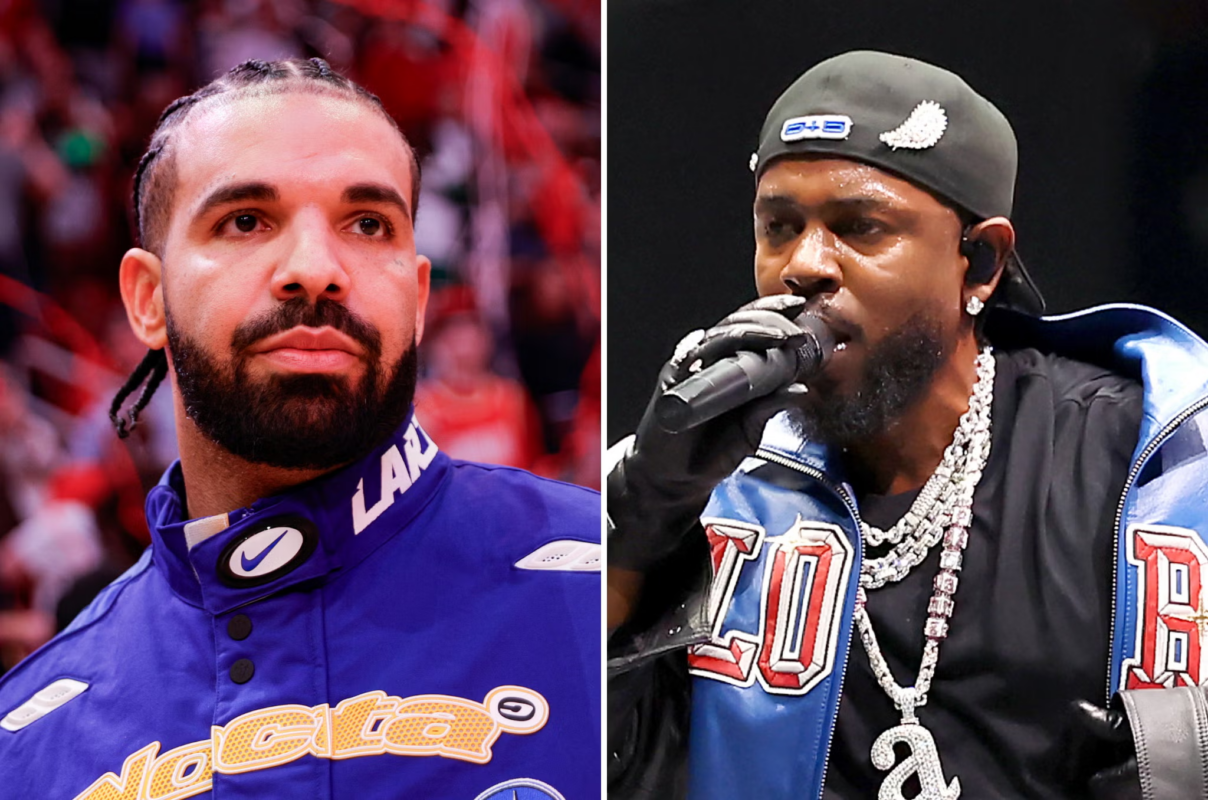News
Why Drake is Taking Legal Action Against His Music Label Over Kendrick Lamar’s ‘Not Like Us’

Introduction: A Feud Beyond Music
The long-standing rivalry between Drake and Kendrick Lamar has taken an explosive turn, moving from diss tracks to the courtroom. At the center of this controversy is Lamar’s track “Not Like Us,” which Drake alleges contains defamatory and dangerous accusations. In a dramatic move, Drake has filed a lawsuit against Universal Music Group (UMG), his own record label, accusing them of prioritizing profits over the safety and reputation of their artists. This legal battle is not just about music—it’s about trust, corporate responsibility, and the blurred lines between artistic expression and defamation.

The Diss Track That Sparked Chaos
Released in late 2024, Kendrick Lamar’s “Not Like Us” became an instant viral sensation. The track, which many fans hailed as a lyrical masterpiece, accused Drake of heinous acts, including pedophilia, and called for retribution. While diss tracks are a staple of hip-hop culture, Drake argues that “Not Like Us” crossed the line from artistic rivalry into harmful defamation. The song’s lyrics allegedly led to real-world consequences, including break-in attempts at Drake’s Toronto mansion and a shooting incident involving his security guard.
Drake claims that UMG knowingly promoted the track despite its dangerous implications. According to his lawsuit, UMG “approved, published, and launched a campaign” to make “Not Like Us” a viral hit, fully aware of the false allegations it contained.
Drake vs. Universal Music Group: The Legal Case
In January 2025, Drake filed a defamation lawsuit against UMG in federal court in New York City. The lawsuit accuses UMG of corporate greed, alleging that the label prioritized profits over the well-being of its artists. Drake’s legal team argues that UMG exploited the controversy surrounding “Not Like Us” to boost streaming numbers and generate revenue, despite knowing the song’s allegations were false.
UMG has responded by filing a motion to dismiss the case, claiming that Drake’s lawsuit is an attempt to “save face” after losing a public rap battle with Lamar. The label argues that diss tracks are an accepted part of hip-hop culture and that Drake himself has used incendiary lyrics in his own music.
The Fallout: Reputation and Safety
Drake’s lawsuit highlights the tangible impact of “Not Like Us” on his life and career. Beyond online harassment and public ridicule, he alleges that the track caused significant damage to his reputation and brand value—particularly as he prepares for contract renegotiations with UMG later this year. The rapper also cites safety concerns, pointing to violent incidents at his home as evidence of the song’s dangerous influence.
In contrast, UMG maintains that they have always supported Drake’s career and invested heavily in his success. A spokesperson for the label dismissed the lawsuit as baseless, stating that it undermines the creative freedom essential to hip-hop.
Kendrick Lamar: A Silent Participant
Interestingly, Kendrick Lamar is not named in Drake’s lawsuit. While Lamar remains at the heart of this controversy, Drake has chosen to focus his legal action on UMG rather than his rival. This decision underscores Drake’s belief that the issue lies with corporate accountability rather than artistic expression.
Lamar has not publicly commented on the lawsuit but continues to enjoy widespread acclaim for “Not Like Us,” which has been nominated for multiple awards. Fans and critics alike view Lamar as having “won” this rap feud—a sentiment that only adds fuel to Drake’s frustrations.
Art vs. Accountability: Where Do We Draw the Line?
Drake’s legal battle raises important questions about the responsibilities of record labels in promoting controversial content. While diss tracks are a celebrated aspect of hip-hop culture, where does one draw the line between artistic freedom and defamation? Should record labels be held accountable for promoting content that could incite violence or harm an artist’s reputation?
This case also highlights the power dynamics within the music industry. As one of UMG’s most profitable artists, Drake’s decision to sue his own label reflects growing tensions between artists and corporations over creative control and ethical responsibility.
Conclusion: A Battle Far From Over
Drake’s lawsuit against UMG marks a pivotal moment in his career and could set a precedent for how record labels handle controversial content in the future. As this legal drama unfolds, it remains to be seen whether Drake will succeed in holding UMG accountable or if this case will be dismissed as another chapter in hip-hop’s storied history of rivalries.
What is clear is that this feud has grown far beyond music, touching on issues of safety, reputation, and corporate ethics. For fans of both artists—and for the music industry as a whole—this battle serves as a reminder of how powerful words can be when amplified on a global stage.
